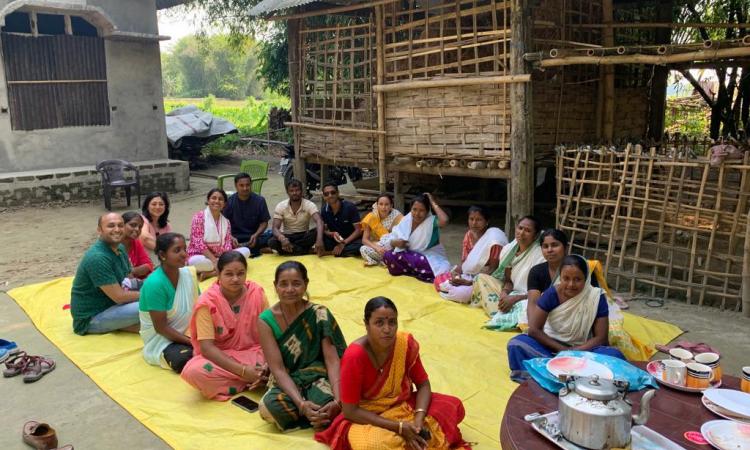
The enchanting island of Majuli, nestled in the Brahmaputra River in Assam, India, is not only a haven of natural beauty and cultural heritage but also a place where culture and history intertwines with environmental concerns. Home to the native Mising tribe and facing the annual onslaught of the mighty Brahmaputra, Majuli stands as a testament to the resilience of its inhabitants and the delicate balance between human activities and the environment.
Majuli's cultural tapestry
Majuli, once a peninsula in the Brahmaputra River, was carved out by its turbulent waters. Today, it hosts over 250 small and large villages, including the native Mising community. These indigenous people have relied on Majuli's land and water resources for centuries, engaging in farming, fishing, and animal rearing. Their cultural practices are deeply rooted in the indigenous Donyi-Polo religion, which emphasizes the harmony between humans and nature.
Majuli, reachable solely by ferry from various ports in Jorhat, relied on wooden and bamboo boats until a capsizing incident prompted their substitution with motorized ferries from Kerala. While there are plans to enhance infrastructure access with bridge, this raises concerns about ecological degradation and urbanization. The ferries currently restrict access to Majuli, preserving its remote and exotic allure, which could be jeopardized by the construction of a functional bridge.
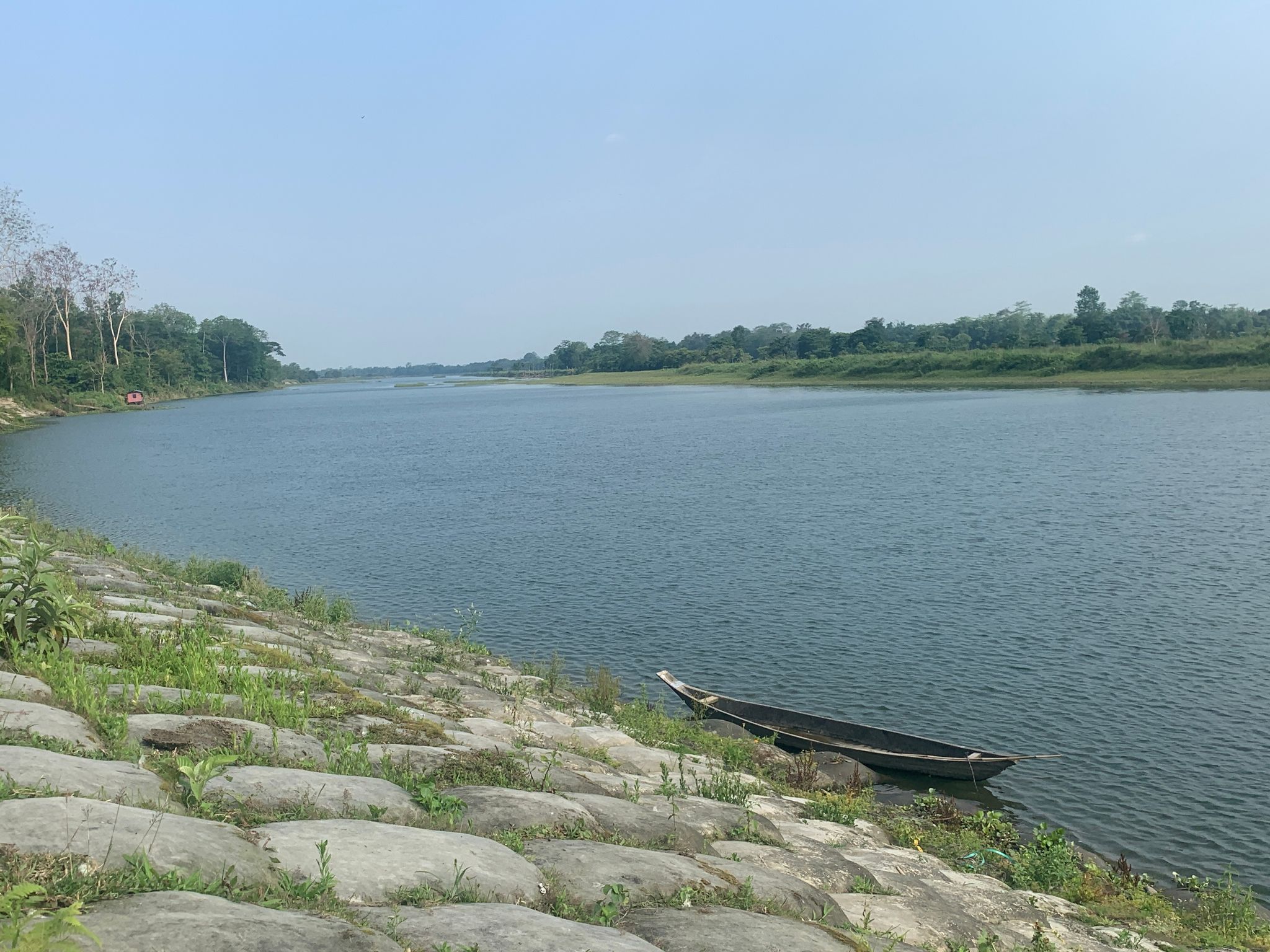
The threat of flooding
Majuli's picturesque landscapes belie the challenges it faces. The annual floods caused by the Brahmaputra River pose a constant threat to the lives and livelihoods of the island's inhabitants. In response, the Mising and other local communities have developed innovative flood-proofing techniques. They raise their houses on bamboo stilts, demonstrating their resilience in the face of nature's fury. However, Majuli's land area continues to shrink due to erosion, amplifying the urgency of finding sustainable solutions.
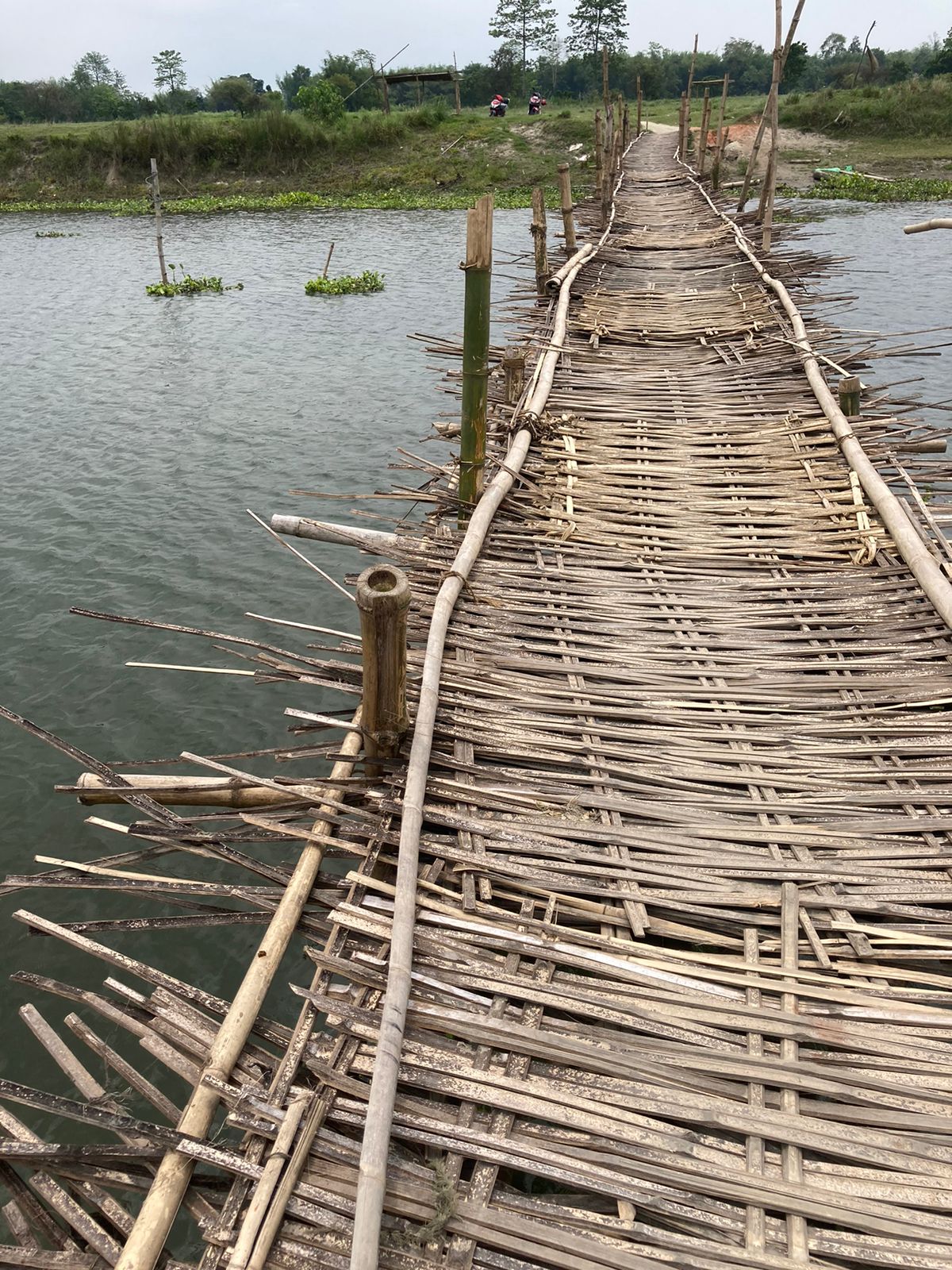
Goonj's 'Cloth for Work' Initiative
Addressing Majuli's water-related issues and fostering community resilience, Goonj, a social organization, empowers communities through its 'Cloth for Work' initiative, giving them complete ownership and decision-making power. In Majuli, villagers have built numerous community infrastructures such as roads and bamboo bridges that facilitate commuting during the monsoon season. They have also planted indigenous plants along seasonal streams to combat soil erosion. These efforts not only enhance local infrastructure but also foster community cohesion and ownership.
Empowering women through 'Not just a piece of cloth'
Goonj introduced it's 'Not just a piece of cloth' initiative in Majuli to raise awareness about menstrual health and hygiene. Through its support, a group of enterprising women set up a small kiosk selling eco-friendly cloth pads known as 'MY-Pad'. Priced at an affordable rate, these pads offer a sustainable alternative to disposable options. The kiosk has become a space for open conversations about menstrual health, promoting empowerment, and providing a platform for community interactions. Furthermore, the women involved in this initiative also enable local artisans and sell essential goods, fostering economic growth within the community.
Preserving cultural heritage
Beyond environmental concerns, Majuli Island is a repository of rich cultural heritage. The emerging and popular Majuli Music Festival held annually in November celebrates the local folk music and art of the Mising Tribe. This festival serves as a platform to showcase the mask-making tradition, which depicts mythological stories through the art form. The festival attracts visitors from all over the world, fostering cultural exchange and generating income for the local community. Majuli is also known for its vibrant handloom industry, with every household proudly owning a handloom. The women of Majuli, through their entrepreneurial spirit, promote local artisans and market access, preserving the traditional craftsmanship and sustaining the local economy.
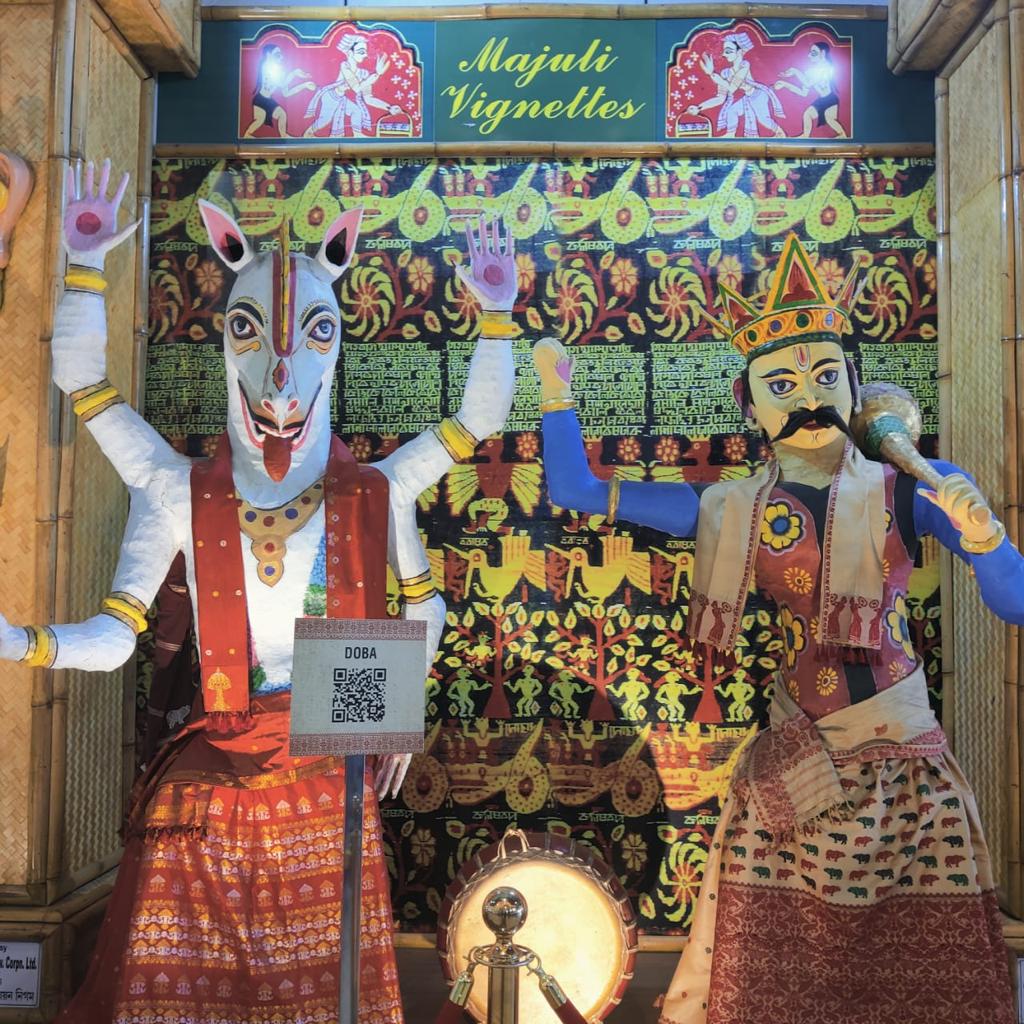
Water hyacinth, also known as the 'Terror of Bengal,' poses significant challenges nationwide. Introduced as an ornamental plant by the British, this non-native invasive species blocks waterways, hampers flood control, and threatens aquatic life. Yet, Majuli's innovative communities have found a unique solution by using water hyacinth to create handicrafts. These products hold promise in mitigating the ecological impact of water hyacinth and contribute to efforts in combating climate change.
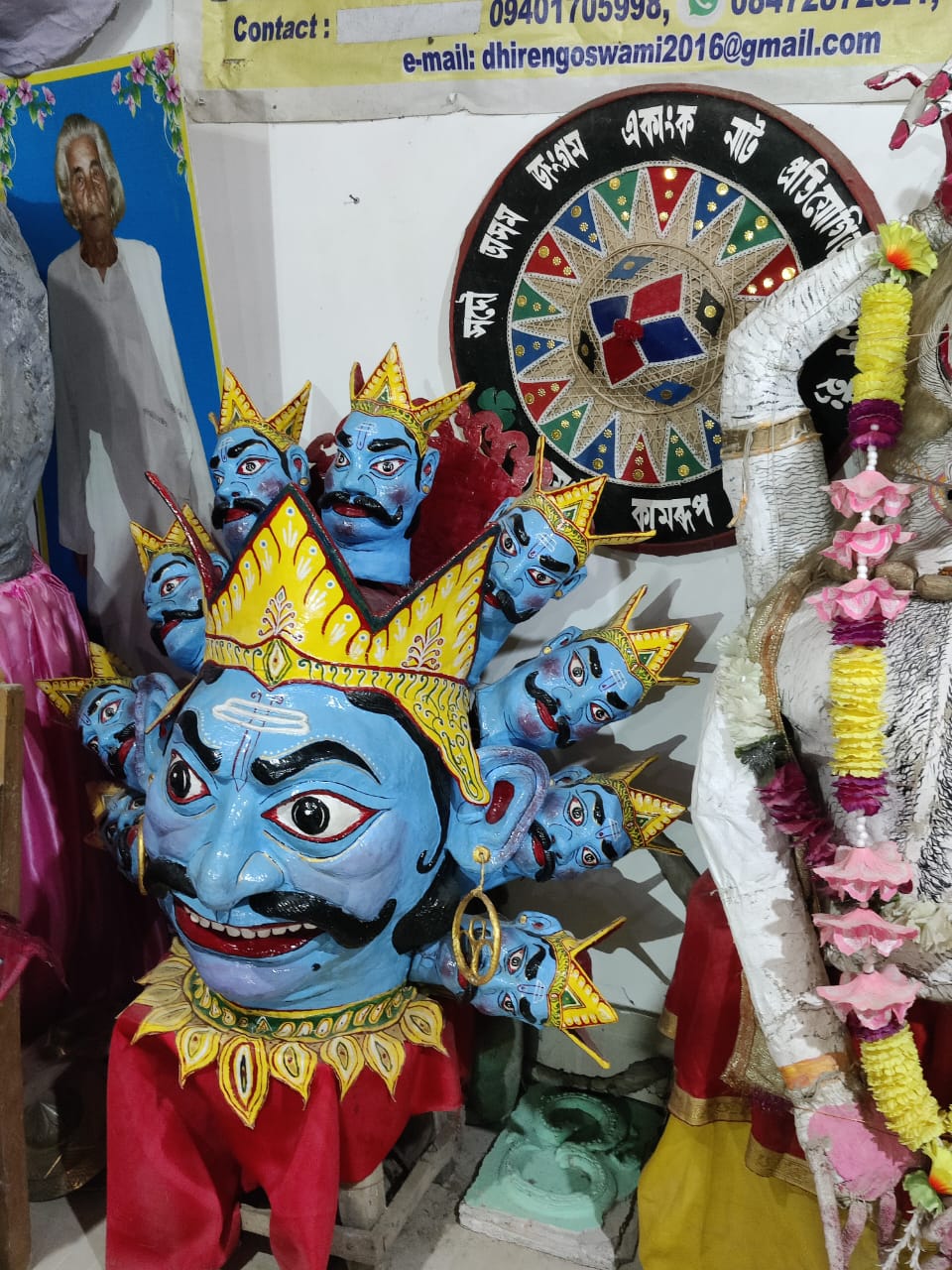
Majuli Island stands as a testament to the resilience of its inhabitants in the face of environmental challenges. The harmonious coexistence of culture and ecology on Majuli serves as a powerful example for the world. Through initiatives like Goonj's 'Cloth for Work' and 'Not just a piece of cloth,' and the Majuli Music Festival managed by organic farmer and woman entrepreneur Momee Pegu and Mukul Doley Majuli showcase how community-driven efforts can address environmental issues while empowering women and preserving cultural heritage.
Majuli's story reminds us of the delicate balance between human activities and the environment. It highlights the need for sustainable solutions and community engagement to protect our natural resources and promote resilience in the face of adversity. The island stands as a beacon of hope, inspiring us to work towards environmental harmony and cultural preservation in our own communities.
Author: Ekansh Gupta is the Team Lead, Rebuild India Fund founded by Dasra and Tarsadia Foundation. The organization supports grassroots NGOs with flexible funding and capacity building - recognizing and respecting NGO leaders' ability and power to run their organizations in a manner that serves their communities most meaningfully.
/articles/majuli-island-tapestry-resilience-and-environmental-harmony